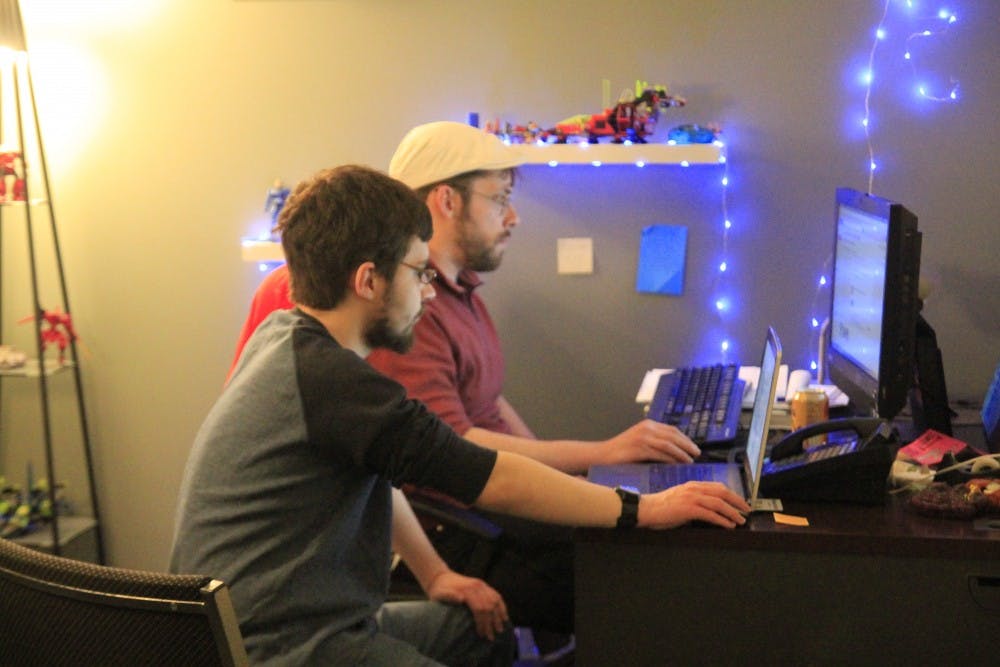Lauren Buchanan, 19, aspires to be an applied behavior analysis therapist. Her learning differences make it more difficult for her to acquire the social and life skills her peers without autism often take for granted. After she graduated high school, she became a student at the College Internship Program in Bloomington.
CIP provides her with extra academic support, basic life skills coaching and an IU student mentor to prepare her for her ultimate goal: independence.
“I get more one-on-one here than I would get in college," Buchanan said. "I get my stuff done on time, and I’m really ahead on things. My mentor pushed me to get out into the community.”
She meets with her mentor one morning a week to grab a bite to eat. They talk about things like roommate problems and school frustrations, and they learn from each other’s experiences. The mentors are there for the students to vent to, so the students can relate to a peer outside the box of a diagnosis.
In the next 10 years, an estimated 500,000 students with autism will graduate from high school, but the unemployment rate for people with autism is just over 75 percent, according to Autism Services, Inc.
April is Autism Awareness Month, which represents a nationwide effort to promote inclusion of people with autism. CIP works to show how people with learning differences can experience success in the workplace.
“A lot of the things are things we take for granted in our everyday life," CIP social skills coordinator Jake Steinmetz said. "Things we learned when we were younger. We’re just taking that and giving them a little extra support and opportunities to learn with peers. The social skills piece is really in every part of our life, and we take for granted sometimes we just know these things. But we all have areas that we’re weak in.”
CIP was established in 1984 and has five locations nationwide that connect high-functioning autistic students and students with other learning differences to academic, career and life skill support.
CIP students get on-the-job training, career coaching, mock interviews and resume preparations, as well as information on life skills like banking, budgeting, goal developing and skills to be successful in an apartment.
IU psychology students can apply to be mentors through a clinical psychology class. They get assigned one or two CIP students to work with for six to eight hours throughout the week. This semester, seven mentors take students out into the community to shop or go out to eat, as well as attend skills courses with them.
“The mentors from IU are really invaluable to what we do here because it allows us to have peers that we’re working with,” Steinmetz said. “It’s easier to confide in a peer than it is an adult.”
“And it’s much easier to accept feedback from a peer because you feel like it's legitimate,” admissions coordinator Ashley Sullivan said. “When it’s your parent, or some washed-up older person, you’re like, ‘But you don’t really know what it’s like to be somebody my age.’”
The program also gives psychology students hands-on experience with people with autism as well, something they can’t get in a lecture hall.
Kerrigan Smith, a junior psychology major, has been working at CIP since January. She said she appreciates the program giving the students and mentors looks into each other’s lives and the way each other think.
“The first time my mentee said that they wanted to hang out with me, that was really huge,” Smith said. “I know a couple other of the mentors have experienced the same thing, and seeing the reciprocal interest is always rewarding. 'Oh, I’m actually doing something right.'”




